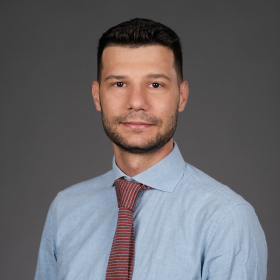

Preslav M, European Parliament
I have been working in the European Parliament for five years. In my Unit, we advise and support the Members of the European Parliament (MEPs) in the management of their local assistants’ and local service providers’ contracts. ‘Local’ in this context means that the operations are occurring in the countries in which the MEPs were elected.
My role is to make sure that MEP’s requests are handled professionally and payments to their staff and service providers are made on time. An important part of my job is to verify and guarantee the legality and regularity of these transactions by ensuring that the appropriate rules are observed.
The variety of situations and questions that I face daily, while having direct contact with MEPs and their assistants, is what I consider the most challenging but also interesting aspect of my job. Furthermore, it is rewarding to know that my work contributes to the sound and transparent management of the Parliament's finance and budget.
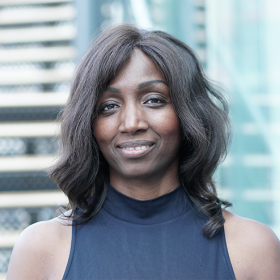
Adja (European Commission - Directorate General for Economic and Financial Affairs)
“Applying for EPSO’s competition for economists can be a great opportunity from many respects!
Hi, my name is Adja and I am a macroeconomist at the European Commission, DG ECFIN. I have a Ph.D. in applied international economics (major econometrics) from the University of Namur. Before joining the European Commission, I worked in the Federal Planning Bureau in Brussels.
Since 2019, I am working in the field of EU fiscal policy. I first spent some years in the unit in charge of the coordination of Member States’ surveillance in the context of the Stability and Growth Pact. Being in constant interaction with many units and colleagues across the DG, was a great experience, which definitely has developed both my practical knowledge on the application of the Pact, a cornerstone of the EU policy, and my leadership skills. It also widened my horizon as regards the different factors driving the EU fiscal policy and public debt developments.
As a result, I recently joined the unit responsible for monitoring and assessing the sustainability of EU public finances in relation to fiscal risks stemming, for instance, from ageing population and related issues (like pensions, health care and long-term care spending), green transition or banking sector. This is a very exciting job, involving a holistic approach to consider fiscal risks arising outside the realm of public finances stricto sensu, some of these risks being also part of the EU major challenges ahead.
So, what can you expect if you work for the European Commission?
- First, you will have the opportunities to deal with many challenges and responsibilities, that are linked to EU policies with a direct impact on Member States,
- Second, you will work with various talented and inspiring colleagues from different backgrounds, both cultural and professional ones.
- Finally, you will also have many occasions to be involved in a broad variety of topics ranging, for instance, from macroeconomic forecasts to the implementation of EU fiscal rules.
So just give it a try, have a look at the Notice of Competition and apply!”
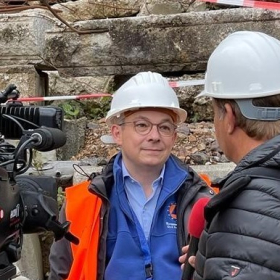
Felix (European Commission)
"I am a lawyer by training and have been working for the European Commission since 2005. I started my career in the legal team of DG Agriculture, then moved around inside the same DG, dealing with topics as diverse as international trade negotiations and organic farming. But after 10 very intense and interesting years, I moved to DG ECHO. I worked as an Assistant to the Director-General and later joined the Cabinet of the European Commissioner for Crisis Management. Especially these two assignments gave me a good overview of the diversity of work carried out by DG ECHO: From coordinating international emergency response in case of natural disasters in the EU to supporting humanitarian funding across the globe.
More recently, I became the Manager of a Unit of 27 colleagues that deal with the development of the Union Civil Protection Knowledge Network, a structure that will help civil protection and disaster management stakeholders to connect better and share knowledge. It also entails assisting in civil protection field exercises, organising expert trainings and many more things.
Working in DG ECHO is very special. Because it is essentially about helping people in need and preparing better for disaster. Ultimately, to save lives. I consider this a great privilege: to be part of what is probably one of the most noble policy areas of the Union. It is not about pushing paper, but delivering concrete help when it is most needed. And the COVID-19 pandemic as well as Russia’s aggression against Ukraine have shown how important it is to stand together in solidarity.
In fact, I would probably not have thought during my studies of international law at Tübingen and Bonn, London and Berne Universities that I would end up here. But I have not regretted that choice ever since.
And by the way, Brussels is also a very nice place to live and to raise a family. I cannot think of a more international and inspiring workplace. For the three children, growing up in an international environment is a huge opportunity. They grew up bilingual from the beginning and the European Schools make sure that they become enthusiastic young Europeans.
The only thing I should also point out: The weather in Belgium is not always what you would like it to be … but Belgian food and drink compensate."
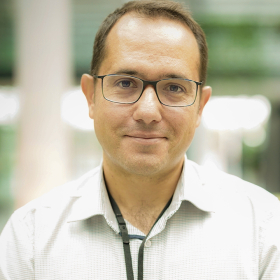
Charalampos K. (European Parliament, Ex-Ante Verification Service)
My name is Charalampos; I joined the European Parliament in Luxembourg after passing a financial officer competition. I am now coordinating the small Ex-Ante Verification team where I started my EU career as a clerical and financial officer in 2019.
Our job is essentially to act as the internal controllers for public procurement and contract execution matters in our DG. This position leads me to interact with other finance and procurement specialists as well as legal advisors dealing with tender procedures and contract execution, mainly in the IT field. It is very fulfilling to interact with them, to understand the varied aspects of procurement they deal with, to hunt for inconsistencies, and to help them solve possible problems.
Before joining the Parliament, I was working for the Defence Ministry in Greece as a financial officer in the fields of accounting, budgeting and public procurement. My wife and I fancied working for an international organisation, so we studied together, and we both successfully passed the same competition! My wife is now working as an accountant officer at Parliament’s DG Finance and our family is happily settled in Luxembourg.
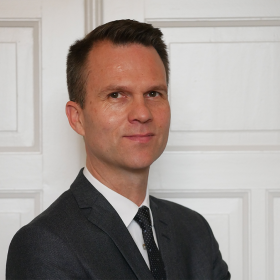
Frederik, European Commission
“My name is Frederik and I come from Denmark. I am working in the area of transport (DG MOVE) of the European Commission.
Transport plays an absolutely vital role for citizens and businesses, and it is a big economic sector employing many people, which is what makes our work in DG MOVE so interesting and concrete. Transport also brings a number of challenges such as pollution, noise and accidents, which we need to tackle and which, especially for some transport modes, is a greater challenge than for others.
In DG MOVE, as one of the only sectorial DGs of the European Commission, we work on a variety of aspects from environment and social matters to infrastructure, and from state aid to economic regulation. DG MOVE is therefore a DG that offers many opportunities to work in different areas, to learn and to develop.
I very much enjoy working in DG MOVE, with colleagues of all nationalities and with experts in many areas. We also work closely with the industry, member states and other stakeholders, which all together gives a rich and varied job environment.”
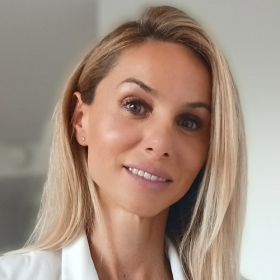
Tsveta M., European Commission
Working at the Treasury of the European Commission (Directorate-General for Budget) is one of my most interesting, exciting, and rewarding experiences. The job is very varied and dynamic, there are always new things to learn. It includes crucial tasks such as daily cash and liquidity management of treasury assets in central banks, treasuries, and commercial banks; execution of payments; managing the treasury and reporting of Trust Funds; calculating transfers between Member States' accounts to ensure funds are distributed in accordance with the regulations in place. We make sure that the EC has sufficient funds available to materialise and implement its policies and programmes.
What makes the job even more appealing are the people I work with. I have colleagues from all over EU, with their unique cultures, backgrounds, experiences, languages - an environment that makes me feel a part of the big EU family.
If finance and EU affairs are your passion, don’t miss this opportunity, apply!
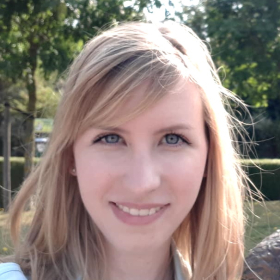
Krisztina (European Economic and Social Committee)
“I have been working for the European Economic and Social Committee (EESC) since 2016. I work at the Section for Economic and Monetary Union and Economic and Social Cohesion and within our unit, I first worked on policy issues related to the Capital Markets Union and for the past two years, I have been working on the economic policies and in particular, the Economic and Monetary Union.
Our institution is one of the consultative bodies of the Union. The members of the EESC represent the organised civil society of Europe and with the opinions they draft, the EESC feeds into the European policy-making process the views, concerns and recommendations of civil society. My job is to support the EESC members in writing opinions on topics related to the EU's economic policies. For my work, I have to be up-to-date about the economic policy developments in the EU, follow the progress on legislative files at the Commission, the Parliament and the Council and be aware of the relevant research in academia, think tanks and the position of civil society organisations. I also organise meetings, public hearings or conferences, and establishing contacts with relevant stakeholders. Every day, I feel like I am at the heart of European policy-making and of building a resilient, sustainable European economy. What I love about my job is its diversity and that it constantly challenges me to stay on top of my game.”
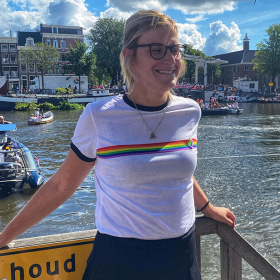
Aleks, Financial Officer
“I am Aleks (she/her), and I work as a Financial Officer at the European Commission’s Directorate-General for Budget (DG BUDG). My main responsibilities are in the areas of EU Green Bond financing and Asset Management Coordination. I’m also a member of the Commission’s Task Force on Equality.
Colleagues in my unit, including the Head of Unit, who were the first to be aware of my gender identity, were very supportive and understanding of my transition. Eventually, when the whole directorate became aware of my identity, I can confidently say that I have not had a single bad experience but rather found support and ‘kind curiosity’. I also prepared some materials on transgender issues with senior management, an initiative that was very well accepted by all. Transgender people can find a safe working environment in DG BUDG. Challenges remain, of course, especially when it comes to recognition and digital administrative systems, but positive changes are coming and I am happy to see and be part of various internal task forces and groups working on how to further improve current systems.
There’s a long path ahead but we are on the right course. I believe transgender people will be warmly welcomed in any team in the Commission.”
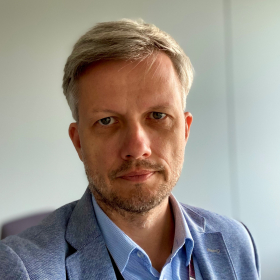
Jakub, European Commission
“My name is Jakub and I work at the European Commission’s Directorate General for Mobility and Transport. I am a deputy Head of Unit responsible for inter-institutional relations, planning and programming and coordinating response to crisis – such as COVID-19 pandemic or Russia’s war of aggression against Ukraine. I am economist by education and before joining the Commission, I worked for the Polish administration on Poland’s accession to the EU.
What I cherish most at my current position is the variety of tasks and skills I need to be successful, the fantastic work atmosphere, as well as the high quality of work we are expected to deliver. What I find quite unique about the Commission is that, if you want, you can easily change your job, while preserving your position and pay. In the past, I enjoyed working for the Directorate General for Environment, the Secretariat General, the Office of the Commissioner for Climate Action, and the Office of the Commission President, and at each of these places I learned something new.
Brussels is a great place to be. It is of much more human scale than the bigger EU capitals, and it still offers plenty of top-notch cultural events. It also makes it easy to meet new people and to make new friends.”
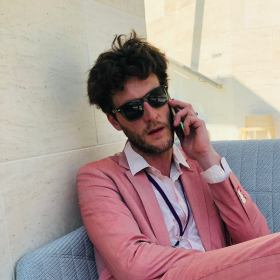
Pieter, Council of the EU
“I have been working for the European institutions for more than 10 years and I have not regretted a single day. It was my dream to work for the institutions, since I was 16. I must say, it turned out even better than what I imagined at 16. For me, not a single day has been the same. And every day has been great. The job has offered me a lot of satisfaction. You find challenges to resolve. You get opportunities to learn new skills. All this in a multi-cultural environment. I find it amazing to work with people from all over Europe and in a multi-lingual environment.”

